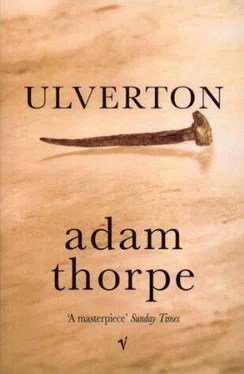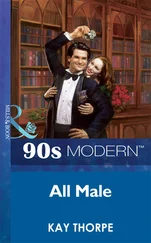I write this with an an [unsteady?] hand. The company snoring across the benches, sprawled like Balthazar’s Feast over table, straw, and even out in the yard, some coupled together in the first sin, though clothed, mercifully, I stepped out in the middest night, and [crushed?] a fiddle underfoot, that was left [in] a rut, and took myself to the furthest rick, that I might take some corn in secret for the Doll, tho’ it be not from the last [sheaf], and my lanthorn casting its light by chance into the cow-stall as I passed, and seeing there a shape hanging like a sack, entered in, and held the lanthorn up, and met of a sudden the eyes of my wife lo[o]king wide-eyed at me, as if to berate […] but on reaching my hand out, she did turn at my touch [and] look likewise past my head […?] dangled by the neck above the manure passage, with a straw-rope the instrument of her [undoing?], and cut her down with much difficulty by [means of] a hay knife, and saw that she was expired, blue in the skin, and puffed, and [broken-necked?], and cried out, that God might take her into His arms, anyways, though I know where she is fast bound, and could [wake up] no one, cursed be that tincture! [except] the old dame, whose body [reeked of piss?], coming up the path at dawn, for so [long] had I lain with my wife in the cow-stall, amongst the straw and dung, stricken as [I] was, and vomiting.
God rest her soul.
I have been unable to write observations for a month. It is time already for the fallow to be sown with wheat. The heat of summer is gone, mercifully. A slight frost last night. The flails sound from the barn all day. My wife has been buried out of sacred ground, near the new Chapel, three weeks to the day. My maid talks of marriage.
I have sown my spewy field, a small one of three acres only, with hay-dust, that the acid-juice might be killed, after paring the turf and burning it.
The fallow was sown with wheat this day, October 12th. No gusts, and the new seeds-man has a fine cast.
My new hummellers stamp well, are lighter in action, and so less effortful. This year, I have tied a sheet across the door to prevent poultry from pecking the grain thrashed, low enough to retain the chaff-wind. Today we riddled with a bamboo mesh, but I noticed no difference from the split willow. The barley seed is good, in spite of the inclement weather. The wheat grain is full from the application of dung, I believe, in the late winter.
I saw my wife last night, at the window. I do not believe in spirits. My men will [not?] venture into the cow-stall alone.
Today I found a cross marked in chalk upon the tree in the yard. My maid talks of marriage, too loud.
My cousin, over from Bursop [i.e. Effley] is to proceed with turnips this next year, he says. I say, let the men of Surrey and Kent do what they will, I am for grass.
This November begins with much rain. The soil […]
Last night, again, my wife appeared at the upper window, though she outside, and I within alone. Her face was white, as chalk is, and [gleaming?]. Her expression was of an inmost […] I pray heartily every morn and eve, and in the night. The wind is high and doors blow about the yard, open[ing].
I have rebuked my maid for impropriety. To marry her, as is her suggestion, will annul the charitable nature of my adoption, while making the child no more my own in the eyes of the world, and will give rise to rumour. This angered her. I am paying £1 for her confinement, and the child. She is unruly. However, she retains her strength, and I think only of my son, and that the farm will remain Plumm’s, and [not] fall into my cousin’s hands, who is not of my name.
The trees about my upper field are almost all withered. The artificial hedge has budded. It is the northerly nature of the winds this last month of December that has killed them finally, coupled with the dryness of the past year, sufficient to viliorate the roots. The peas proved parched here, and this field is scarcely worth the toil and expense. I looked down upon the village, and at the market in progress, and considered how content the folk amongst those buildings were, to labour for others, and see only hobgoblins, and not their dec[e]ased. The two ravens hung up here are quite bleached of feather and flesh, without odour, and the crows are too numerous, owing to the previous […]
The crows are too loud. This is owing […]
This day my maid, entering the parlour, fell down upon the ground, and cried out, and was taken to the upper room, to the flock-bed, and was visited by the old dame, who will see her through, and at my insistence by Dr Ke[m]p, who pronounced her ready. She cries out very loud through this night, as I write this, and pray.
I have a daughter.
This New Year, my field that was fallow, and is now to wheat, has suffered somewhat from the harsh frosts of the past week, its soil being of a [spongy?] nature, and I fear the effect of the rags might be impoverished by the inclemency [of the weather.]
The threshing is finished.
My wife continues [to appear] at the window. The maid threatens me and I must silence her with 6d a week. The infant grows apace, well in health. I have considered allowing the maid to retain it after [suckle?] but she will have none of [this]. The Chapel is roofed, and the stone in place. My cousin came by and he has hired a winnowing machine at cheaper rate, the threshing finished, [for] the next year.
I have sketched my pump for the irrigation of dry fields, and am well [pleased?] with its design. The Chapel members wish to enscribe my charitable action upon a further stone, but I have desisted. This day I counted my profits, [which] have come to £40 and 5s. I walked about the yard, and propose to replace the cow-stall and barn with new [buildings in] brick.
This day I smelt [spring?]
— NO, DO NOT think me unhappy. I scratch by candle tho’ ’tis sunlight outside — but this endurance is for benefit. I hear the rooks loud as in that poem by Mr Pope. Old aunts not yet. O William, return quick and halloo under my window. Your position with Norcoat is secure, I hope. I do not have the stomach for your loss of a few days — more would kill me. Charles does well. He suckles regular, the wet-nurse tells me, and his swaddle is ripe with healthy excretions. You shall see him anon.
’Tis cold here too — my fireplace is not built for coal — I prefer the blazing faggot tho’ they have fallen for coal.
My husband is in London also. If you should pass him, and he should recognise your appearance, do not flinch. Be open. Rub your hands and laugh for he will be witty at someone’s expense, if not your own, my love. ’Tis strange, but my knowledge that he is visiting women goes hard with me. I think this is because ’tis the fashion to think a man that is married can lack fidelity without scandal, yet a wife must be quartered for it. I bear the weight of this house upon my meagre shoulders — I am its reputation.
I cough from the puffs of my fireplace. ’Tis a veritable vapour in here, but not the medicinal sort. There is no egress for the poor smoke. We are prisoners both.
My mind starts then grows weary: ’tis the effect of the delivery –
Nurse Fieldhouse has been in here a minute past. I concealed this letter ’neath another, part written, to mine uncle at Stagley. She has eyes very small but sharp as diamonds. Ten to one she will recover our secret from its hiding place or I be less careless.
I give this to the maid tight-sealed as usual, but I daresay thumbs will at it. Check the seal is not broke. I spread powder on my desk so fingers may not fiddle.
Our love is a well — ’twill draw forever.
Dearest, I am,
yr eternally loving,
A.C.
March 8th.
Most dearest William, –
Читать дальше










